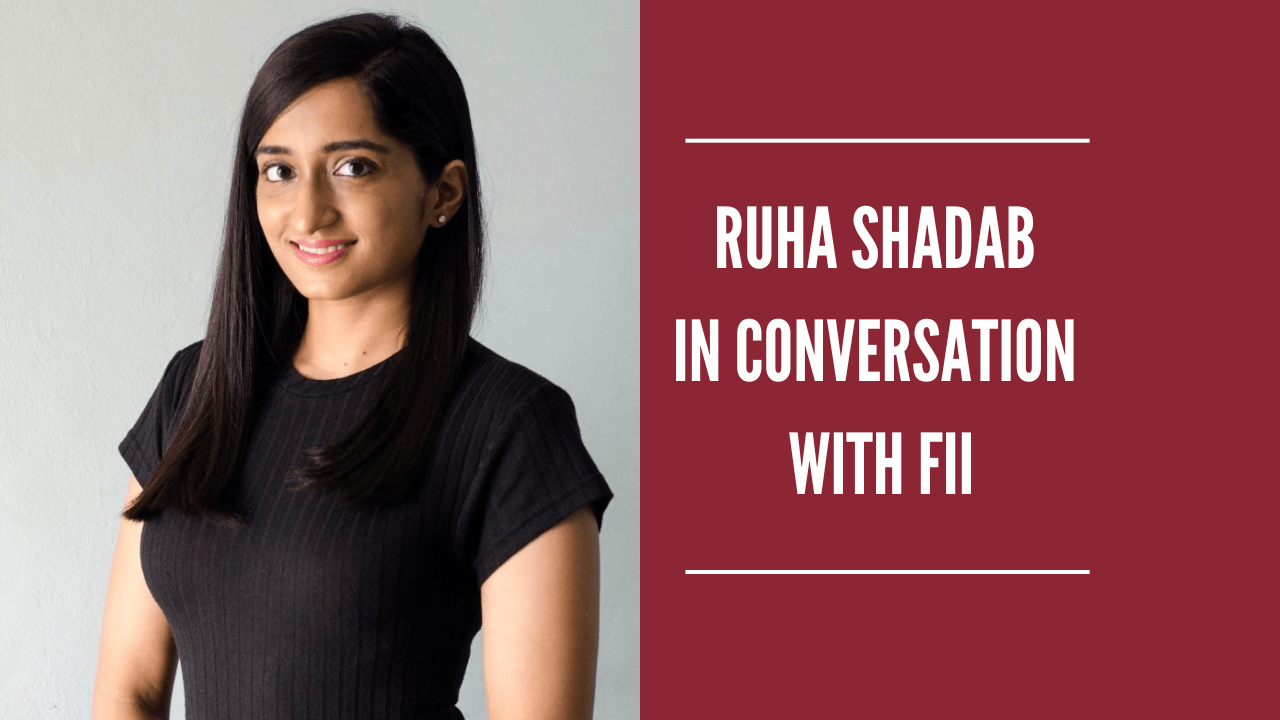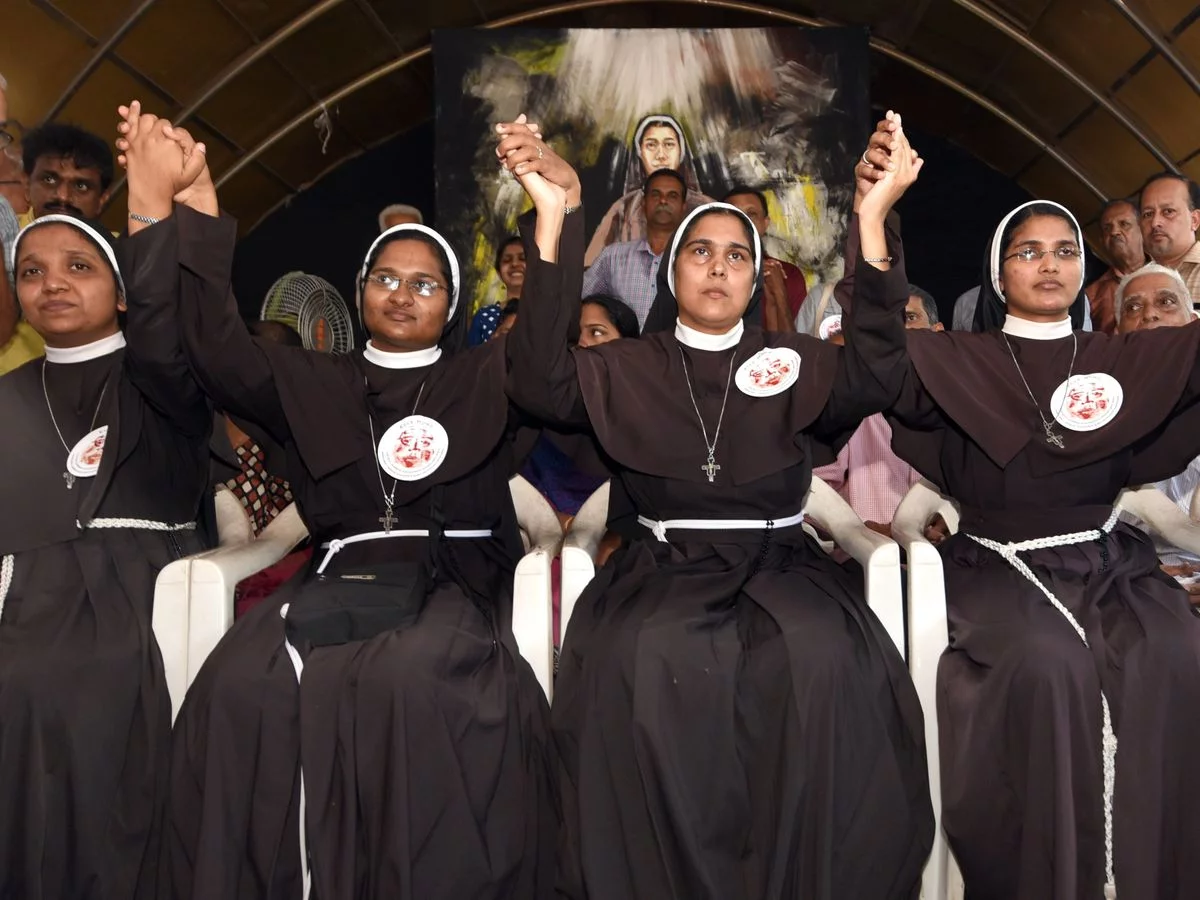Ruha Shadab was born in Saudi Arabia but moved to New Delhi, India as a child. She is a doctor by profession, and she has worked on public health issues under NITI Aayog, the apex public policy think tank of the government of India. Later, she went on to graduate from Harvard Kennedy School with her master’s in public policy. She is also the founder and CEO of LedBy Foundation, which is a social enterprise that provides professional training mentorship to Indian Muslim women.
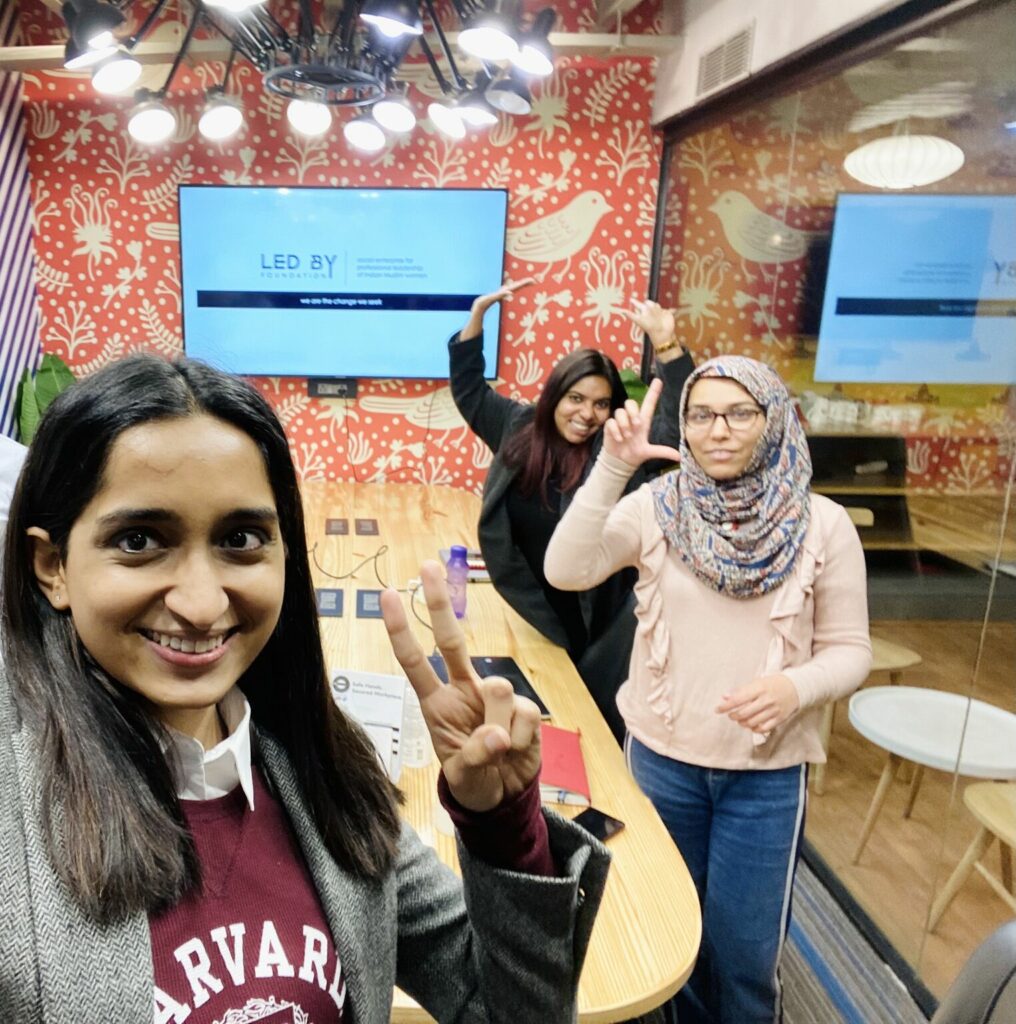
She grew up in a Muslim family and was therefore familiar with the prejudices and challenges that Muslims in India experience. The lack of Muslim role models in the country came as a surprise to her. She felt that young Muslim women’s aspirations especially are stifled by a lack of leadership and inadequate representation, and the community is unable to overcome the long-standing barriers to female empowerment.
In a conversation with FII, Dr Ruha Shadab discusses her experience of living in Saudi Arabia and India, why the LedBy Foundation is focused on Muslim women specifically and its mission to increase the number of Muslim women in the Indian workforce. She also emphasises how our workforce needs to reflect and represent the diverse communities that exist in our country.
FII: What was your experience of living in India as a Muslim woman? Are there any particular instances or micro experiences that made you conscious of the lack of representation of Muslim women everywhere?
Dr Ruha: It started with the lack of representation of Hindus in Saudi Arabia. That was one of my earliest memories of the dynamics of minority and majority. In Saudi Arabia, I was a part of the religious majority and I never thought much about it. Ramzan used to be a big affair, school timings, and office timings would be adjusted and Eid would be the biggest celebration. It was very convenient because it perfectly aligned with your family calendar and the priorities of your home unit.
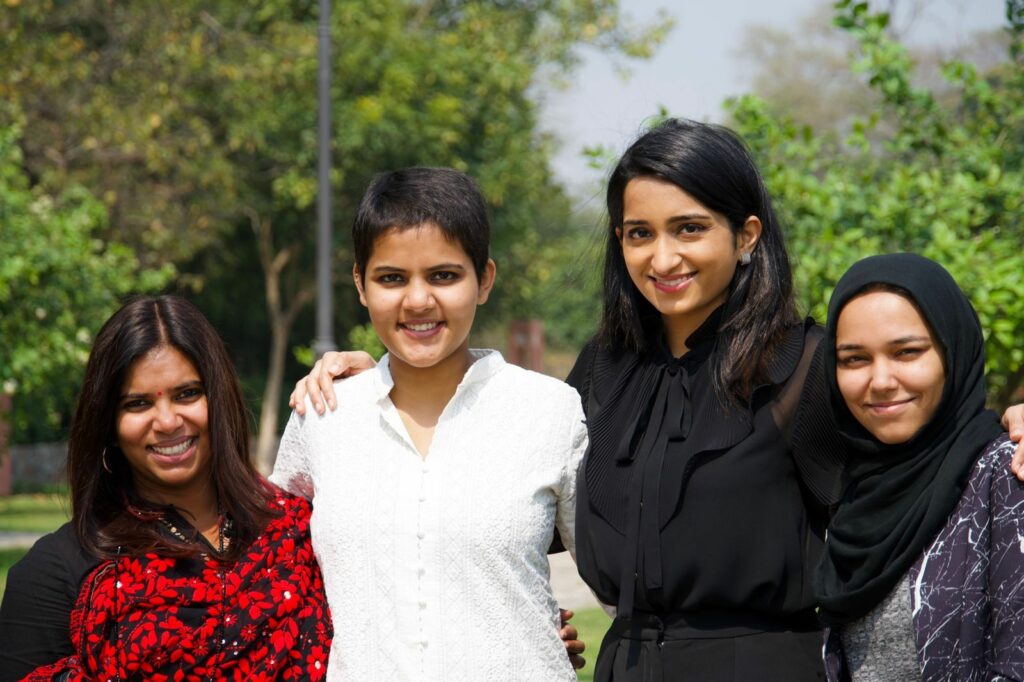
I had a couple of very close Indian Hindu friends, but I didn’t overthink it because I was also only eight years old. Then, the day we flew to India on October 19, 1998, and it was the day of Diwali. I remember getting out of the Delhi airport, being driven to Noida and seeing all these houses decorated with lights, and kids bursting firecrackers, it was a vibe!
The first thing that came to my mind was my Indian Hindu friends in Saudi, ‘never celebrated Diwali like this.’ The only thing I knew about Diwali was this 50-word essay that I needed to write for my Hindi class. But very soon, I realised how they might have felt in a way because very few knew about Eid or when Ramzan was starting (in India).
People were a little oblivious to the cultural practices of Muslims. So, what this did for me was it made me empathetic towards minorities’ experiences, what it’s like to not be mainstream and what that does to your psyche. The second was a little bit of empathy for people who are part of the majority because it is a collective feeling when the majority is not made empathetic/ sensitised towards how minorities feel and it’s usually not one individual’s fault, it’s a system fault.
FII: What was the rationale behind founding LedBy, particularly for Indian Muslim women?
Dr Ruha: The reason we focus on Muslim women within India is because it’s a hundred million or 10 crore people and indicators-wise, we can see that they trail behind on education and employment indicators. When you trace that out, you realise that it is a unique set of root causes that is holding them back. Some root causes are common with other women, some root causes are common with other Indians, and some root causes are common with Muslim men.
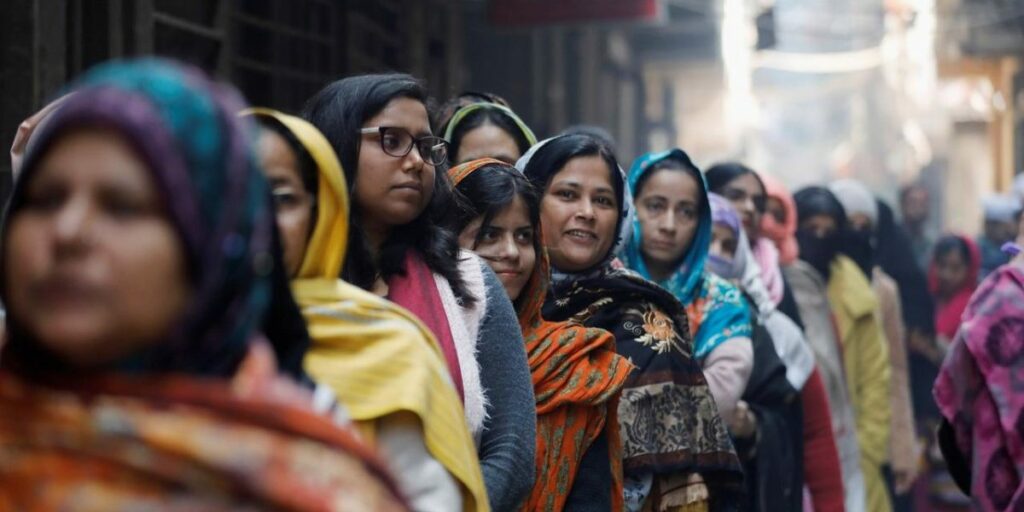
When you take it in totality though, it is a unique set of factors that is keeping them back or that is making them face challenges. Just from a doctor’s mindset, I think you need to be specific with your interventions, some are mass and apply to all of India and some of them need to be more niche and more specific.
In addition to that, I also think it’s essential to create spaces where people can be their full authentic selves and there aren’t many such spaces. So, that’s why we decided to focus on this particular group, which is by no means a small group.
FII: What are some of the root causes that are holding Muslim women back?
Dr Ruha: Causes are both internal and external to the community. There are external macroeconomic issues that keep women from entering the workforce in India. Some things are more specific to the Muslim community. For example, the LedBy research showed that Muslim women in India are only half as likely to get a job call back as their Hindu counterparts. So, there is systemic discrimination.

Then, there are internal challenges that have been improving now, like the focus on the education of women and employment and letting them have jobs. That was in, or is in, the forefront for the community but at least some trends show that might be changing. The prioritisation of education was lacking within the community and then, of course, macro factors regarding female labour participation in the country and the lack of women-friendly jobs.
FII: Getting Muslim women to join the workforce in India when the system they’re entering is essentially working against them, what kind of teachings or tools is LedBy equipping these women with?
Dr Ruha: We are trying to create an ecosystem that’s more conducive for them. For example, the training that we provide them upskills them professionally and makes them more confident. Then we also build an ecosystem around them, which helps them get access to networks and opportunities that they otherwise would not have. We also help them pay it forward, so all the fellows and participants, all the people who graduate LedBy, at some point during the journey, have to act as a mentor to younger school girls or find a way to pay it forward.
I think that builds a sort of confidence and leadership values/skills in them. Finally, we also work with companies to sensitise them of the importance of religious inclusion and diversity that mirrors India’s diversity which makes them more amenable or makes them more intentional about their staffing policies. It empowers the individual through their upskilling, empowers the individual by creating a network around them and then, also impacts the demand side of the job market which is the companies actively seeking out Muslim women and being intentional about their workforce.
FII: Did you experience any sort of pushback from either the families or the companies while trying to work towards better representation in the workplace for Muslim women? If so, how did you go about solving this pushback?
Dr Ruha: In terms of the pushback from companies, it is that there is a lack of acknowledgement that the problem even exists. “Why should we focus on Muslim women? It doesn’t matter in the workplace, right? The best person gets the job.”
The best person doesn’t get the job, our research shows that if you’re Muslim, it’s fifty per cent less likely. Having this data has been able to convince companies to then, introspect some more on their work and their hiring practices.
Ruha Shadab
But the best person doesn’t get the job, our research shows that if you’re Muslim, it’s fifty per cent less likely. Having this data has been able to convince companies to then, introspect some more on their work and their hiring practices.
The other pushback that we get is the idea that there just aren’t enough Muslim women to even recruit. There’s not enough supply or there isn’t a large enough recruiting crew of Muslim women. That’s one of the things that’s addressed by LedBy where we expand the number of Muslim women who are looking for jobs and help them have the competent skills for these jobs.
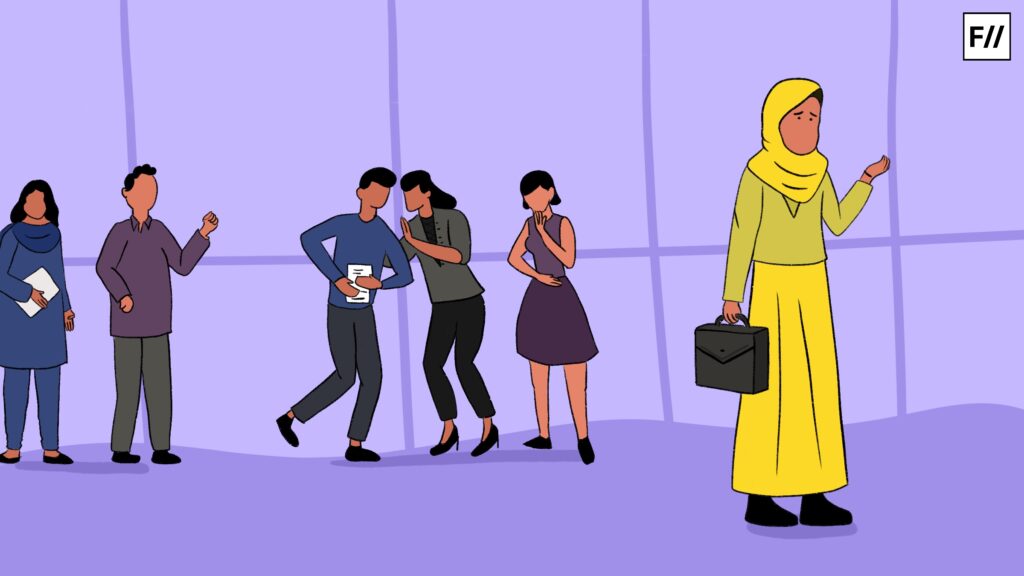
The second part of your question was about families. With families, almost forty per cent of the women who apply to LedBy learn about LedBy through a male family member who encourages them to apply, which I think is pretty cool. We have had parents who were hesitant about their daughters joining LedBy initially but then, when they saw the kind of confidence that these women were able to develop, get great jobs and great university admissions, they turned around.
One father said, who spoke at a LedBy graduation ceremony, that LedBy has empowered his daughter and it has also empowered him because it was his first time speaking on a public platform. So, these are the kinds of stories and positive empowerment that we see at LedBy Foundation.
FII: Which Indian Muslim women would you say is LedBy accessible to? Would you say LedBy can be accessible for Muslim women in semi-urban or rural spaces as well?
Dr Ruha: Right now, definitely the urban side, urban-focused but we do want to move towards rural areas where the most needs to be done and we’re working our way to that. It is also very fresher-focused at the moment but hopefully, we can expand to mothers who want to re-enter the workforce as well.
The interview has been paraphrased and condensed for clarity
About the author(s)
Sharanya Gopalakrishnan is a recently graduated journalism student from Flame University. She
loves reading and watching cringe TV shows. She hopes to publish her own novel someday.
